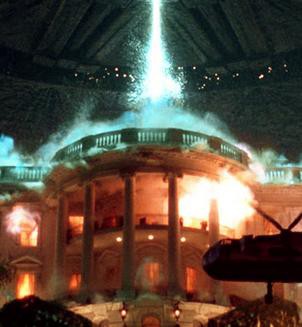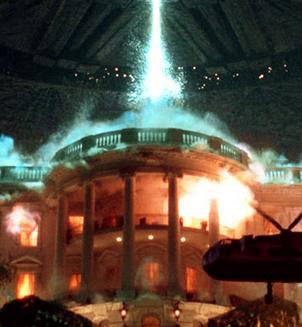Damon Lindelof on ‘Story Gravity’: “Once you spend more than $100 million, you have to save the…
Damon Lindelof on ‘Story Gravity’: “Once you spend more than $100 million, you have to save the world”


In this piece at Vulture, the venerated-and-also-hated LOST creator talks honestly and self-consciously about the reasons you’ve probably been more into TV than movies for a while now:
Hollywood’s gigantism, Lindelof points out, is practically algorithmic — and the effect tendrils all the way down to the storytelling level. When ever-larger sums are spent to make and market ever-fewer, ever-bigger movies, and those movies are aimed at Imax screens, then world-shattering comic-book I.P. and gigantic special effects are expected, with larger-than-life characters wielding those effects. No one necessarily asks for it; it just kind of happens. It’s what Lindelof calls Story Gravity, and dealing with it — whether that means resisting it or simply surfing it skillfully — is the great challenge of writing this new breed of tentpole blockbuster. The question used to be: How do we top ourselves? The new one seems to be: How do we stop ourselves?
“Once you spend more than $100 million on a movie, you have to save the world,” explains Lindelof. “And when you start there, and basically say, I have to construct a MacGuffin based on if they shut off this, or they close this portal, or they deactivate this bomb, or they come up with this cure, it will save the world — you are very limited in terms of how you execute that. And in many ways, you can become a slave to it and, again, I make no excuses, I’m just saying you kind of have to start there. In the old days, it was just as satisfying that all Superman has to do was basically save Lois from this earthquake in California. The stakes in that movie are that the San Andreas Fault line opens up and half of California is going to fall in the ocean. That felt big enough, but there is a sense of bigger, better, faster, seen it before, done that.”
Lindelof then gives the folktale of ex-slave steel driver John Henry the blockbuster treatment, firing through a series of multiple-personality rewrites:
“We don’t really want to talk about him being a slave that much,” says Lindelof, adopting the Ultronic voice of the Studio. “Quentin can do it; Django Unchained embraces that. But look, we’re spending $170 million on this movie. If there’s a way to not even say the word slave … We can say, like, ‘in the days of oppression’? But let’s just kind of avoid that entirely. And the initial draft writer would say, ‘No, that’s the entire point. John Henry is, or was, a slave.’
“Okay, you’re fired. We’re going to bring in someone else, and what we’re going to do — we love this forbidden Romeo-and-Juliet love story. It’s going to be Titanic! Maybe the villain should be her father. We don’t need to nuance this; they were never friends. This guy is just like — he’s moustache-twirling, he represents everything that we hate. We don’t want to spend too much time on him.
The best movie I’ve seen all year is Fruitvale Station, which is a small story in that it covers 24 hours of a person’s life and relishes, beautifully and painfully, the banal. But it is also the biggest story. Lots of Story Gravity there in the most opposite of opposite ways.